
WERE YOU able to watch the recently held Paris Olympics? Witnessing the 100 meters sprint, I was, as always, overawed by the physical fitness of the runners. Every part of their body, irrespective of its size or location, worked in complete synchrony, all focused on the singular goal of running the race. This harmonious coordination, dynamic in nature, allows athletes to perform at their peak, with each component adapting to meet the requirements of the whole at any given moment.
A similar principle applies to organizations.
When all components of an organization operate in dynamic synchronicity toward a common goal, the entity achieves its full potential. For those tasked with managing organizations, this concept holds immense promise. But the critical question remains: how can one ensure the united functioning of a complex entity like an organization?
Need for integration
To ensure that an organization operates harmoniously as a unified entity, a high level of functional and operational integration is required. While the human body achieves this integration naturally, organizations must engineer it.
Achieving this level of integration necessitates a multi-faceted approach: committed leadership, clear goals, actionable plans, and employee involvement. Among the various enablers of integration, Information Technology (IT) plays a pivotal role. This article explores the evolving role of IT in fostering organizational integration.
Integration in the precomputer era
Before the advent of computers, integration in organizations relied on documented systems and procedures, such as company manuals. These processes were developed based on experience and helped coordinate actions across functions and locations. For example, if the sales department needed data about inventory levels, they would refer to the centralized manual records maintained meticulously by the inventory team.
This story is from the January 2025 edition of CIO & Leader.
Start your 7-day Magzter GOLD free trial to access thousands of curated premium stories, and 9,000+ magazines and newspapers.
Already a subscriber ? Sign In
This story is from the January 2025 edition of CIO & Leader.
Start your 7-day Magzter GOLD free trial to access thousands of curated premium stories, and 9,000+ magazines and newspapers.
Already a subscriber? Sign In
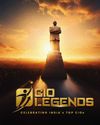
CIO LEGENDS
CELEBRATING INDIA'S TOP CIOS
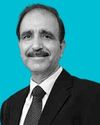
Cloud & Infrastructure Strategy
Vinod Bhat, Chief Digital Officer, TATA AutoComp System Ltd

Data & Analytics
Vininder Baweja, Chief Digital & Information Officer, Saint-Gobain India
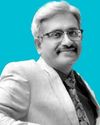
IT Security Strategy
CIO&Leader: People continue to be the weakest link in cybersecurity. What can we do to address this challenge more effectively?

AI in Enterprise
Sajeev Maheshwari, Executive Director - Information Technology and Fare Collection System, Delhi Metro Rail Corporation Ltd

Al's rise: Learning beyond human limits
The ability to refine itself over time makes AI so powerful.
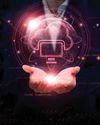
The Toxic Cloud Trilogy is a recipe for disaster
The lack of adequate identity security and the presence of over-privileged access not only impedes visibility but further opens up organisations to attacks.
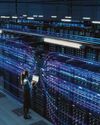
Data centers in 2025: What's driving the boom in India?
The Indian government's push for data localization, under policies like the Digital Personal Data Protection Act, has accelerated the establishment of data centers.
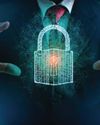
Attaining Zero-Trust Security: Vital steps for small and medium-sized enterprises
For SMBs, safeguarding sensitive customer data, financial transactions, and other critical business information is of utmost importance.
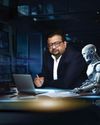
AI won't replace you - BUT AI EXPERTS WILL!
Saurabh Gupta, Group Chief Digital and Information Officer, Gujarat Fluorochemicals